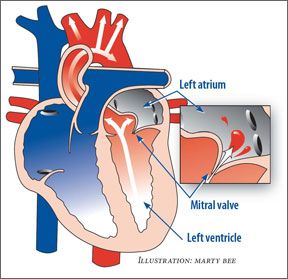Mitral valve prolapse is a condition that millions of people live with for many years without needing treatment. But if you have that condition and it advances to mitral valve regurgitation, you should understand the risks and benefits of mitral valve repair and learn how procedures are making repairs easier on patients. A recent study, however, estimated that only about half of mitral valve regurgitation patients who were eligible for surgery actually had an operation. Researchers, who published their findings in the Aug. 25 issue of the Journal of the American College of Cardiology, suggested that many patients have unwarranted fears about mitral valve repair and too few patients were being referred by their physicians for surgery. Cleveland Clinic cardiac surgeon Marc Gillinov, MD, says that mitral valve repair had historically required major open-heart surgery and that patients with minor symptoms often opted to put up with the inconvenience. Doctors also may have been reluctant to recommend an operation for patients who were too sick or too frail for major surgery or whose quality of life was not significantly worsened by their condition. "We used to have a watch and wait approach," Dr. Gillinov says. "Patients did not have surgery until they had severe symptoms. Unfortunately, many patients developed irreversible heart damage during the wait."
To continue reading this article or issue you must be a paid subscriber.
Sign in






